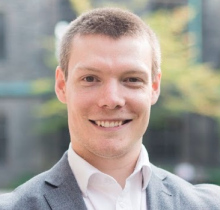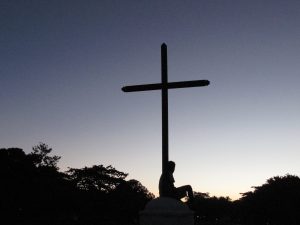It has been a long winter. With record low temperatures across the country and snow squall warning after snow squall warning, it can sometimes feel like Canada is nothing more than a Narnia-level cursed winter wonderland. Now, don’t get me wrong, I actually love winter. I love winters that feel like winter. Yet, there is something about the hope of spring just over the hill that brings on a feeling of optimistic expectation.
Crocuses, daffodils, and tulips wait expectantly just under the surface of a thin blanket of snow and earth. The trees, stoic and bare, whisper of new life and greener more vibrant days. Rebirth is patient, but ready to announce itself at any moment. No matter how acclimatized we have become to the dead of winter we may have found ourselves in, the alertness of spring does come. Yet, I have at times felt caught off guard by such an abrupt change. The metaphors of turnaround seem at times, jarring and sudden. During moments of quiet contemplation on a silent snowy day, the realities of the incipient hope in the unexpected resurrection of nature around us may be something we wanted, but were not quite ready for.
This is why I have always been appreciative of the Christian time of Lent. Lent marks the season beginning the promise of Easter and the hope of resurrection, similar to the initial hints of spring. Lent reminds us simultaneously of the potential of hope and new life as well as the sobering call to make ready ourselves for reflection of a road marked with suffering, and the reality of temptation. Lent reminds us of the infinite nature of God, and the finite nature of humanity. We are dust, and we fall short. But the story doesn’t end there.
Just this morning I was reading the words of famous biologist William Provine. Provine was a brilliant scientist and historian, yet in his 1994 dialogue with Phil Johnson at Stanford University he made the statement:
“Let me summarize my views… and be clear… [t]here are no gods, no purpose, and no goal-directed forces of any kind. There is no life after death. When I die, I am absolutely certain that I am going to be dead. That’s the end of me. There is no ultimate foundation for ethics, no ultimate meaning in life, and no free will for humans, either. What an unintelligible idea.”
Sadly, Provine lived his life in a winter without a spring. But the story of salvation goes far beyond our sight and reaches into the reality of eternity. Beyond death, beyond our shortcomings, our failures, our insecurities, and our inadequacies. When we die, that is not the end, and Lent is a reminder of that renewal.
When we die, that is not the end, and Lent is a reminder of that renewal.
It reminds us of a time of expectation, where after 400 years of silence the world was looking for the Messiah (John 1:41), seeking redemption and the consolation of God’s people (Luke 2:25, 38), and desiring restoration (Acts 1:6). Jesus enters a still thawing world, a creation groaning (Rom. 8:22), a world that had not heard a “thus says the Lord” since Malachi hundreds of years previous. Beneath the frozen ground of cold religiosity, frigid apathy, sin and death’s icy grasp, the Spirit of God was at work. Lent is a quiet reminder that God is not distant, that we can know “that [our] redeemer lives, and that in the end he will stand on the earth” (Job 19:25). That “as surely as the sun rises, he will appear; He will come to us like the winter rains, like the spring rains that water the earth” (Hosea 6:3). That despite the pessimistic persistence of those like Provine, death is not the end and hope of resurrection is sure.
God is the author of creation, and as such, every season has a beautifully planned purpose. Today, even as the snowflakes fall against the window currently beside me, I wait and anticipate the hope of spring.
"*" indicates required fields





